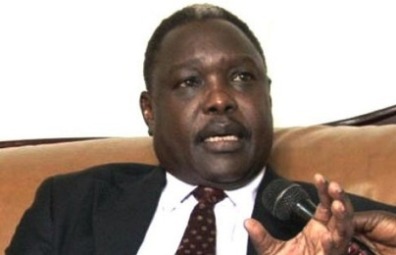S. Sudan lauds UN Security Council’s failure to impose sanctions, arms embargo
December 24, 2016 (JUBA) – South Sudanese government has welcomed the failure by members of the United Nations Security Council to obtain the quorum needed to decide whether to impose an arms embargo and targeted sanctions or take other measures.

“The council of ministers yesterday passed a resolution in which it deplored the way the situation in the country continues to be portrayed. We have noted that the renewed mandate of the United Nations mission in South Sudan (UNMISS) contains some wordings which are not necessary and which do not represent the realities of the actual situation in the country”, Lomuro said Saturday.
“We have said time and again that what is needed now is to support the implementation of the peace agreement. It is not time to impose targeted sanctions and arms embargo,” he added.
According to the minister, sanctions and arms embargo will undermine current efforts by the government to implement the peace, signed in August 2015 to end it’s conflict.
“As the government we welcomed and commend the efforts of those supporting us to implement the peace agreement. Sanctions would not help us move forward”, he said.
Lomuro was reacting to attempts by the 15-member UN body to adopt a United States-drafted resolution forwarded to the Security Council to impose an arms embargo and sanctions on South Sudan, despite warnings it is on the verge of possible genocide.
The Council on Friday held a session at which it sought votes from its members to make a decision on measures to be taken about the situation in South Sudan, but it failed to get quorum. There were seven votes in favour and eight abstentions.
To obtain a resolution on the matter required nine votes in favour and no vetoes by the United States, France, Russia, Britain or China to be adopted. Japan, Russia, China, Angola, Malaysia, Venezuela, Egypt and Senegal all abstained from the voting process.
The US ambassador to the United Nations, Samantha Power, expressed disappointment at the end of the session, saying the world has failed the people of South Sudan whom she said would be the ones to pay the price of the failure by the global community to act now to avert genocide in the world’s youngest nation.
“The council members who didn’t support this resolution are taking a big gamble that South Sudan’s leaders will not instigate a catastrophe,” said Power.
“It is the people of South Sudan who will pay an unbearable price”, she added.
Also, a group of seven nongovernmental groups including Amnesty International, Control Arms, Enough Project, Global Centre for the Responsibility to Protect, Humanity United, Human Rights Watch, and PAX said in joint statement that the failure to vote the sanctions “was deeply disappointing”.
“South Sudanese civilians had a reasonable expectation that the Security Council would make good on its long-standing threat to impose an arms embargo and extend sanctions to some of the senior leaders who have been responsible for grave human rights abuses,” said John Prendergast, founding director at the Enough Project. “I can only imagine their frustration with today’s vote.”
The vote would have seen three key figures in South Sudanese political divides, included the armed opposition leader Riek Machar, chief of South Sudan army (SPLA), Paul Malong, and information minister Michael Makuei Lueth, subjected to asset freezes and travel bans.
This comes after the outgoing UN Secretary General, Ban Ki-Moon on Monday urged the Council to take immediate action to “take steps to stem the flow of arms to South Sudan.”
(ST)
